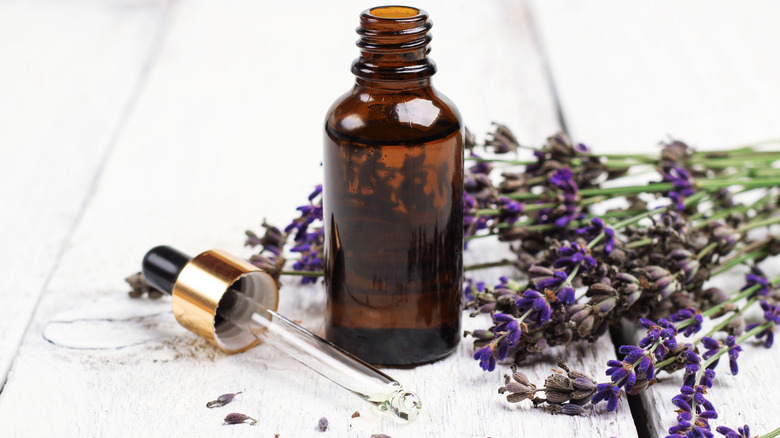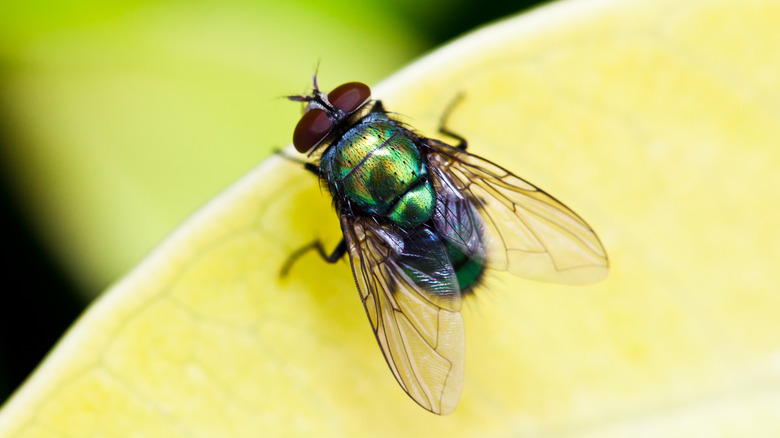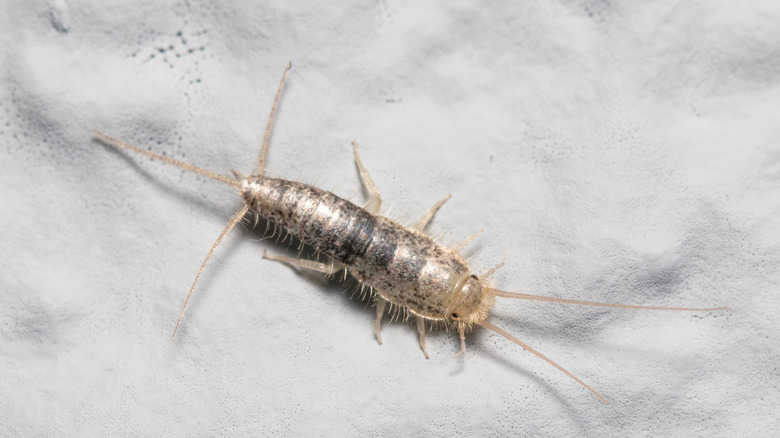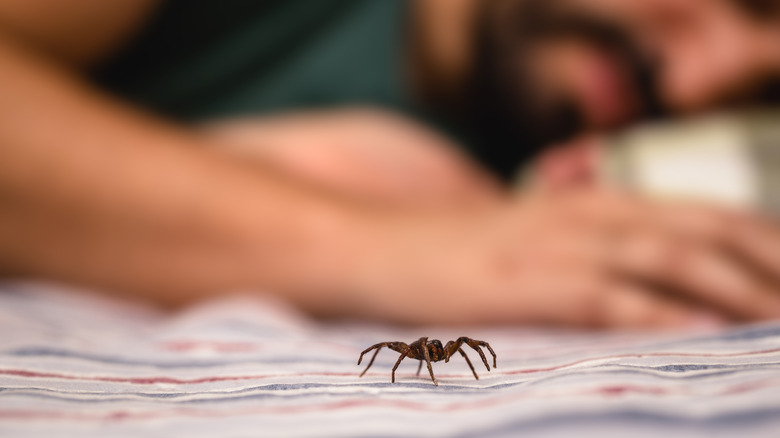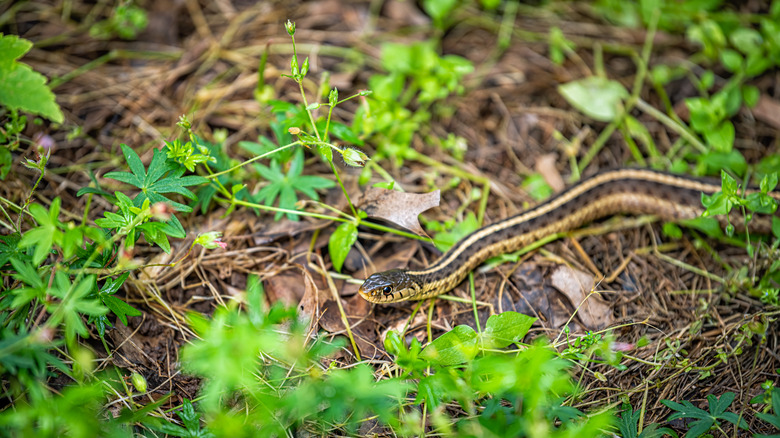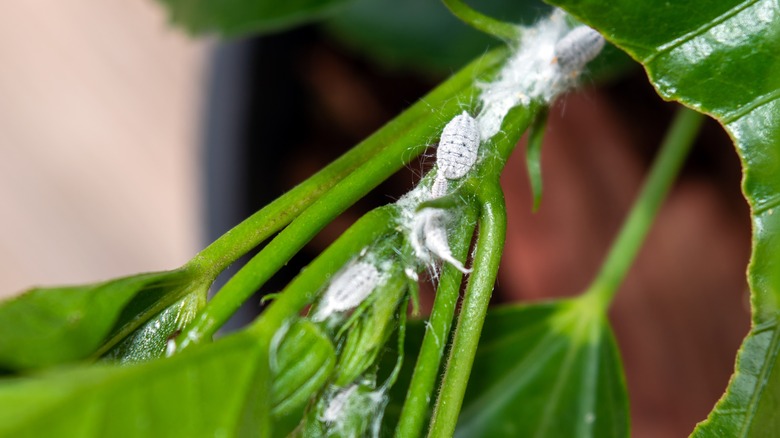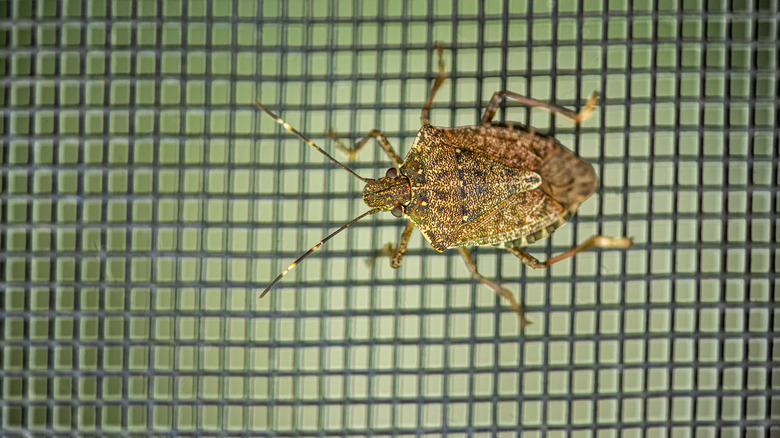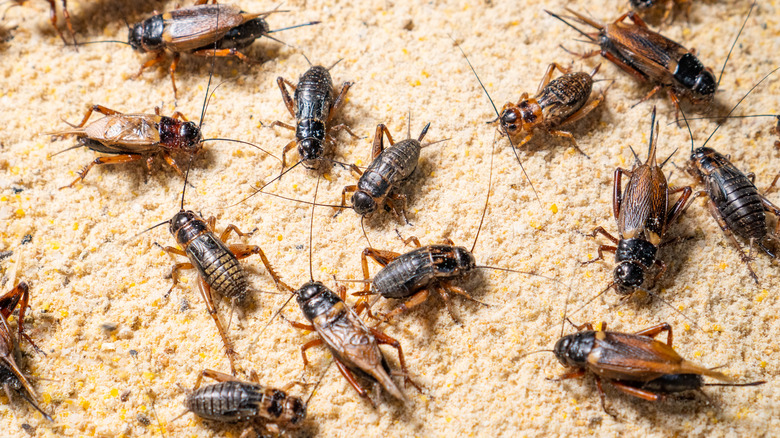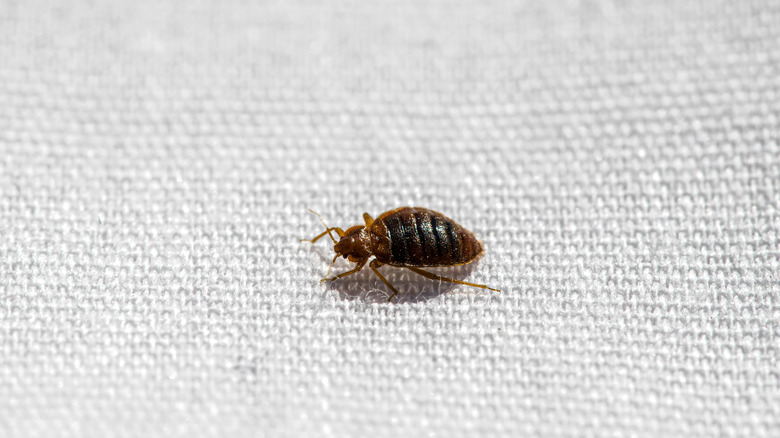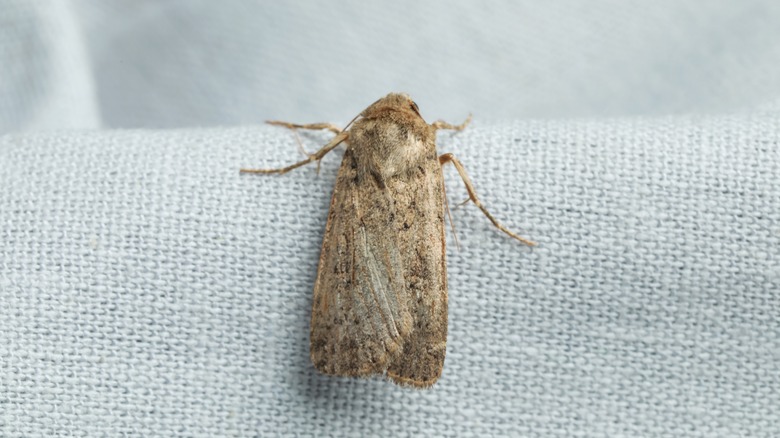9 Unwanted Pests You Can Naturally Deter With Lavender
Lavender is a perennial herb that has a wide range of uses, from perfumery and cookery to cleaning and first aid. The bright, fresh, somewhat astringent fragrance of lavender comes from the plant's volatile essential oils, which are plentiful in the small purple flowers. Lavender essential oil has many practical uses in the home, including being a non-toxic and effective repellent against unwanted insects and other pests.
Lavender essential oil is the most potent form to use for deterring pests, but dried lavender flowers can also be used. You can also try using a strategically placed bar of natural soap scented with lavender essential oil. Still, the concentrated nature of the essential oil has a stronger fragrance than the plant form and is a more potent deterrent. One of the best ways to use essential oil for pest control is to make a diluted spray: 10-15 drops of essential oil per pint of water is a good recipe. Use amber glass spray bottles for the best storage.
Another method is using it straight with cotton balls or pads and small glass jars. Put the cotton in the jar and then put 5-7 drops of essential oil on it, then leave the open jar where you want to deter pests. Refresh the oil every few days. Bonus: it smells good to most humans! Using cotton allows the fragrance molecules to slowly dissipate into the air, creating a constant source of scent. Here are the pests that will be most affected.
Houseflies
There are hundreds of types of flies, but the common housefly is a well-known pest that most people don't see as beneficial to the garden. These flies are known to carry diseases, so keeping them out of the home is a good idea. There are various natural and chemical deterrents to keep flies out of your home, ranging from dishes of vinegar to commercial pesticides. But houseflies are known to dislike the smell of lavender, so it can be an effective method for deterring them.
Silverfish
Silverfish don't bite or sting, but they can be quite destructive in the home, getting into all kinds of things and causing damage, from dry goods in the pantry to clothing, rugs, and books. They eat adhesives, so any form of packaging is fair game. Silverfish spread rapidly once they appear, so getting rid of them can be tricky. Luckily they can be deterred by a number of non-toxic methods, including diatomaceous earth and essential oil sprays. They dislike strong smells, so lavender makes a great deterrent to keep silverfish out of your home.
Spiders
Some people don't mind spiders in the home, because spiders can keep down the population of insect pests. But the webs they build can be annoying. Some spiders may also have toxic bites, such as black widow or brown recluse spiders. Make a spray to deter spiders with three parts water, one part vinegar, and 15 drops per pint of lavender essential oil, and spray it near windows and doors, as well as in dark corners. Doing this in autumn can help deter spiders from taking up residence in your home in winter.
Snakes
The small snakes that tend to appear in most gardens, such as garter snakes, are harmless and may help to control some pests like grasshoppers and slugs. In more rural areas or desert climates, there are snakes that might be worth trying to avoid. But garter snakes, while not dangerous, can still be a nuisance. Snakes don't like strong fragrances like cinnamon, and lavender will also deter them if you put it in a spray, or put some drops on cotton balls in jars, placing them near areas where snakes appear such as woodpiles, rock walls, or sheds.
Mealybugs
Mealybugs are tiny white insects that looks like little dabs of cotton or wet tissue that stick to branches and leaves of indoor and outdoor plants. They're very common and can make your houseplants or garden plants look unsightly, in addition to munching on the leaves. Studies have shown the mealybugs dislike fragrant herbs such as thyme, rosemary, and lavender, so planting lavender can help repel them. You can also try preventing an infestation with lavender spray or using the technique described above with lavender essential oil on cotton balls in jars.
Stinkbugs
Perhaps somewhat ironic given their name, stinkbugs dislike strong-smelling odors such as vinegar and fragrant herbs. Planting aromatic plants such as geranium, lavender, and lemongrass will help keep them from your garden. To prevent stinkbugs showing up to congregate on your window screens, make a handy spray using lavender essential oil (maybe add citronella or lemongrass oils too), and spray the screens once a day during stinkbug season. They start to appear in late summer to seek indoor digs for winter. The strong smell should keep these annoying bugs from hanging out and becoming a nuisance.
Crickets
Crickets aren't often thought of as garden pests, being common in meadow settings. But they do sometimes find their way into home gardens, and from there might make it into your house. They're harmless, but their chirping can make a bit of a racket. Crickets dislike the smell of lavender and will avoid it. Using a spray made with lavender essential oil will help keep crickets from invading your garden, patio, garage, shed, and house. Use 15 drops essential oil per pint of water. Shake well before use and spray in cracks and crevices where crickets like to hide.
Bedbugs
A bedbug infestation can be a nightmare, because these small insects are notoriously hard to get rid of. Bedbug bites can cause itchy skin and rashes, or even allergic reactions in humans and pets. Prevention is recommended, and strong smelling herbal treatments can be a good deterrent. Using a lavender spray to prevent bedbugs on mattresses and furniture is an excellent preventive. If you have a summer home or camp, spraying down any furniture or mattresses and other fabrics before closing up for the season is highly recommended to help prevent a bedbug infestation.
Moths
Moths in the garden are useful pollinators, but moths indoors can be destructive. Some moths eat grains and flour in your pantry, and other moths like to snack on wool blankets and clothing. Lavender is a good deterrent for both these moth problems. For grain moths, store grain based foods in glass jars, and spray the insides of cupboards with lavender spray. Store woolens with a lavender sachet or soap in the closet. Also, a few drops of lavender essential oil in the rinse water when hand washing wool clothing helps prevent moths.
